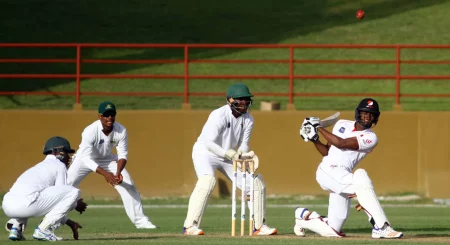It seems too good to be true, yet it is also extremely cliche. Pakistan defeated England 2-1 in a home series by executing the most inscrutable stunts. It is sheerly characteristic of Pakistan cricket (only) to turn matches with a crazy build-up into moments of glory. Captain Shan Masood said after Pakistan’s victory in the third Test that the series opener, where the hosts endured an inning defeat, pushed the team to continue because they knew it couldn’t get worse. As much as it was disrespectful to undermine Pakistan’s ability to mess things up, this actually worked. Pakistan cricket, with this mindset, went all berserk. Dropped their core players, formed a three-headed new selection committee with a recently retired umpire, decided to boycott fast bowlers, and executed different methods to prepare rank turners. After all, if they truly were at rock bottom why not thud the ground more to see if there is any falling left?
It worked. Pakistan’s ramshackle strategy persevered against England’s well-designed and sturdy Bazball. Not once, but twice. That is exactly what Pakistan have been about since their inception. That is exactly what Pakistan have not been about since their inception. They somehow mixed up a hodgepodge of the illogical and unfathomable facets with some newer, more sane tidbits to discover their own self. Brendon McCullum gave words to what many had in their mind,
“I’m surprised it took this long for them (Pakistan) to play on surfaces like that over here.”
But it had to take this long. It is often said that before one studies Zen, waters are merely waters. After a first glimpse into Zen’s truth, waters cease to be just waters. Upon reaching the pinnacle of Zen, however, waters return to being waters once more. Pakistan were on a similar Zen journey too. They brought in a complex way of doing things. Drop-off pitches. Going all-pacers. Appointing a plethora of foreign coaches. At one point, they even let data puppet the system too.
Only to realize that the way to success was as basic as basic can be. For Pakistan, it meant maximizing the advantage of their home conditions. While this seems like a tacit fact for other nations, it was entirely lost on Pakistan. It was also entirely incomprehensible for other teams, as is evident from what McCullum said, to realize that any team could think of self-annihilating its survival chances, merely for the sake of some fancy strategies that don’t even fit them.
Struggling to take twenty wickets? Let’s make belter pitches. On a losing streak? Overhaul the entire system. Are points being docked due to the slow-over rate? Let’s field all fast bowlers in the team. Or adopt an aggressive approach, which would be alien to the entire history of cricket in the country.
Masood said that they are planning to stick to this adaptable strategy. But Pakistan cricket as we know it, does not fancy monotony. It thrives on chaos, uncertainty, and upheavals. After all, what fun is winning consecutively when you can crank the thrill up a notch and wait longer for wins, which like London buses come together, for Pakistan.



